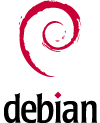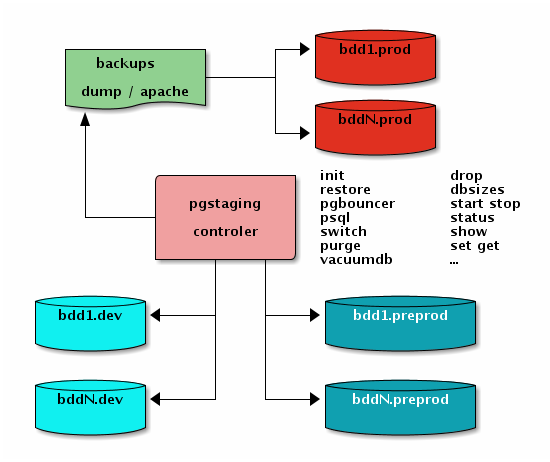
Following up on the very popular emacs-starter-kit, I’m now proposing the emacs-kicker. It’s about the .emacs file you’ve seen in older posts here, which I maintain for some colleagues. After all, if they find it useful, some more people might to, so I’ve decided to publish it.
What you’ll find is a very simple 128 lines Emacs user init file, based on el-get for external packages. A not so random selection of those is used, here’s the list when you hide some details:

If you don’t remember about what pg_staging is all about, it’s a central console from where to control all your PostgreSQL databases. Typically you use it to manage your development and pre-production setup, where developers ask you pretty often to install them some newer dump from the production, and you want that operation streamlined and easy.
Usage The typical session would be something like this:
pg_staging> databases foodb.dev foodb foodb_20100824 :5432 foodb_20100209 foodb_20100209 :5432 foodb_20100824 foodb_20100824 :5432 pgbouncer pgbouncer :6432 postgres postgres :5432 pg_staging> dbsizes foodb.

It so happens that a colleague of mine wanted to start using Emacs but couldn’t get to it. He insists on having proper color themes in all applications and some sensible defaults full of nifty add-ons everywhere, and didn’t want to have to learn that much about Emacs and Emacs Lisp to get started. I’m not even sure that he will Take the Emacs tour.
You would tell me that there’s nothing we can do for so unfriendly users.

After reading Simon’s blog post, I can’t help but try to give some details about what it is exactly that I’m working on. As he said, there are several aspects to extensions in PostgreSQL, it all begins here: Chapter 35. Extending SQL.
It’s possible, and mostly simple enough, to add your own code or behavior to PostgreSQL, so that it will use your code and your semantics while solving user queries.

It’s been a week since the last commits in the el-get repository, and those were all about fixing and adding recipes, and about notifications. Nothing like core plumbing you see. Also, 0.9 was released on 2010-08-24 and felt pretty complete already, then received lots of improvements. It’s high time to cross the line and call it 1.0!
Now existing users will certainly just be moderatly happy to see the tool reach that version number, depending whether they think more about the bugs they want to see fixed (ftp is supported, only called http) and the new features they want to see in ( info documentation) or more about what el-get does for them already today…
